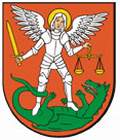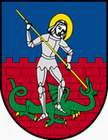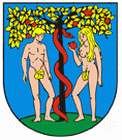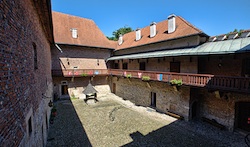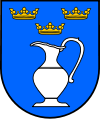History /
An American studying medicine in the PRL 1978-1985: my story [142]
I still do not fathom why they decided to move to Poland. After all, moving from Belgium or France to the PRL in the years 1945-50 was a fairly drastic move.
For sure there were some "socialist idealists" between them. But the rest?
This is what you may want to listen to one day, on a visit to "Archiwum Historii Mówionej".
[The main objective of Archiwum Historii Mówionej, Oral History Archive is commemorating the outgoing generation. To this end we engage various communities and collaborators from all over Poland to record and develop oral histories. ]
Projekt [Project]: Zapomniani Ňõwiadkowie XX wieku [Forgotten witnesses of XX c.]
Wywiad przeprowadziŇā/a [Interviewer]: Piotr Retecki
Sygnatura nagrania [Record signature]: AHM_1140
Miejsce nagrania [Recording place]:
MieroszówData nagrania [Recording date]: 13.01.2009
Czas nagrania [Recording time]: 02:06
Jńôzyk nagrania [Language]: polski [Polish]
Nagranie do odsŇāuchania w Czytelni Multimedialnej Domu SpotkaŇĄ z HistorińÖ
[Recording available at Multimedia Ewading Room, History Meeting House, dsh.waw.pl]
audiohistoria.pl/web/index.php/swiadkowie/nagrania/id/2327/from/ahm/idwyk/148
Opis nagrania [Description]:Relations - Poles in France duing interbellum: customs, occupational structure.
Working class social structure, dominated by Poles employed in mining industry of North-East France, a region with the greatest density of Poles.
Living conditions: life in the mining settlements.
German occupation in France during 1940-1944: the activities of guerrilla organizations, lack of repressions typical of the German occupation of Poland - the round-ups, mass executions, ghettos, etc...
Agitation of the Polish authorities to return to Poland after 1945. The reasons for return: longing for the country that they left as children, agitation of authorities declaring that Poland is now a "paradise for all".
Living conditions: worm-infested (bed-bugs?) flats, although furnished by proprty left behind by the expelled Germans.
Social relations found in Lower Silesia: the presence of Poles from the Eastern Borderlands, France, central Poland, Westphalie, and Jewish, Greek and a large German community.
The attitude of the "French" to the contemporary reality: initial approval of the communist system by willingly joining the PPR and PPS, and then PZPR, MO, ORMO, UB, and Corps of Homeland Security.
Dissapointment associated with significantly poorer living conditions and lower cultural level of WaŇābrzych land compared with Nord / Pas-de-Calais, repressions by the authorities for maintaining contact with relatives remaining in France, social conflicts with strongly anti-Communist groups, attempts to escape to France, service in the Polish People's Army in the years 1948-1980.
========
Adding what I remember about my father-in-law. He was taken from a street-round-up in Lublin and sent to Germany to work at the age of 17. After the war, he was recruited by Belgians - alongside other 23,000 new Eastern-European miners - 'displaced persons' from occupied Western German territory. He married another DP, came back to Poland in around 1960. When I met him his was so much anti-communist that his wife lived in constant fear of him being arrested due his uncontrollable mouth.
It didn't take long for Gierek to rise through the ranks, and in 1957 he was appointed as the regional head of the Communist party. He set about his task with ideological zeal, approving grandiose projects like the Spodek and Park of Culture and Recreation in Chorzów.
That was about time of intensive communist agitation among Polish miners in Belgium and France.
